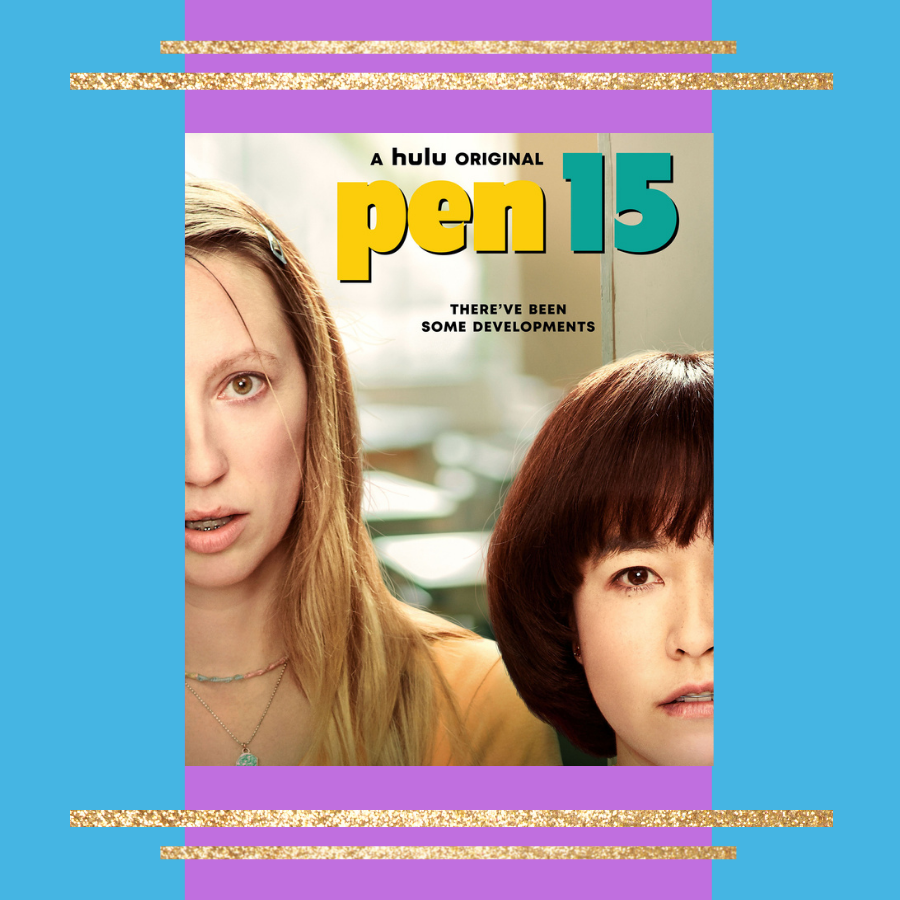I’ve finally binge-watched PEN15 and, oh my gosh, was I not emotionally prepared for the open-armed hug of my own preteen self. Maya Erskine’s and Anna Konkle’s glorious deep dive into girlhood and puberty—which is nominated for a prestigious Peabody Award—ran for two seasons on Hulu and is aptly categorized as “cringe comedy.” In the show, young Anna and Maya tackle middle school in 2000 as two halves of an impenetrable friendship. Erskine and Konkle (who are in their thirties) portray their fictionalized thirteen-year-old selves.
While I would’ve been two years younger than Anna and Maya, I was fast approaching the awkwardness of my own preteendom in 2000—wearing too many butterfly clips in my hair, rocking a pink sports bra, listening to B*Witched on my neon blue Walkman, and being shamelessly invested in sleepover games of M.A.S.H. (knowing which boy you were fated to share a shack and 4,000 babies with felt as important as checking AIM every day after school).
I was not expecting to recognize so much of my own young, weird self in Maya’s and Anna’s deeply sensitive and naïvely adventurous characters, but, well, isn’t it obvious that Anna would have been my idol?
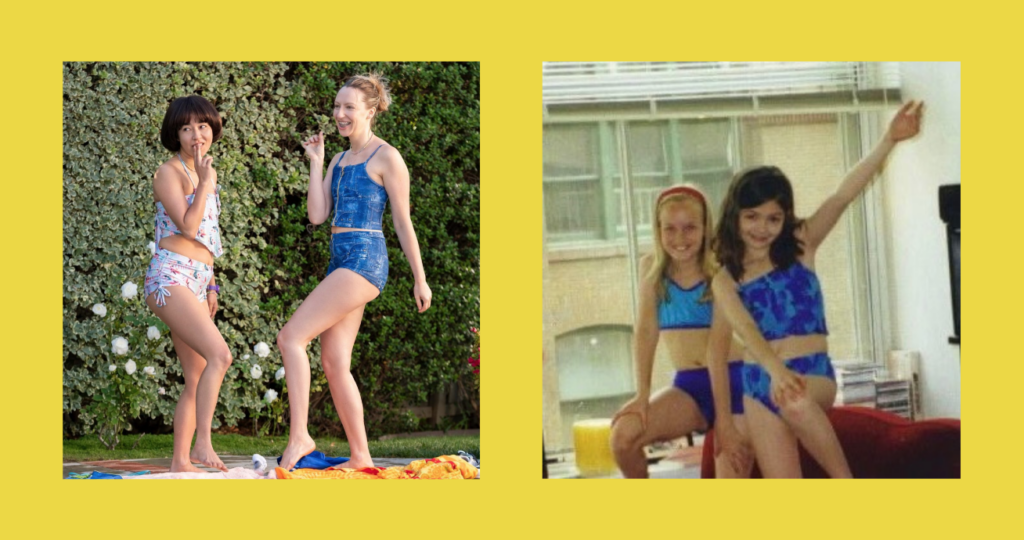
While those swimsuits are a whole separate conversation, here are five aspects of the show that felt like gifts from the Ghost of Adolescence Past.
Awkwardness is owned
If you have any repressed memories from puberty (who among us does not carry at least a few cringe-worthy moments?), PEN15 will dig them right up and place them center stage (under a sprinkling of Anna’s stage manager glitter, of course). The series shows the blood, the unwanted facial hair, the embarrassing screen names (Maya goes with “Diper911”) and the awkward lingo—from the sophisticated zinger “Doiii!” to the self-assured use of “he’s a player” in reference to fellow thirteen-year-olds.
Maya and Anna confidently discuss their goals of getting their romantic first kisses and boyfriends, then fumble through their objectively unromantic first physical intimacies with others. The inseparable protagonists are often present for each other’s “firsts,” parading the paradox that is not wanting to lose your youth while feeling impatient to jump into the mysterious waters of adult behavior. I felt like the show was putting an arm around me as we surveyed the wreckage of broken hearts and Care Bears T-shirts, saying, “Hey, wasn’t this a wild, important time?”
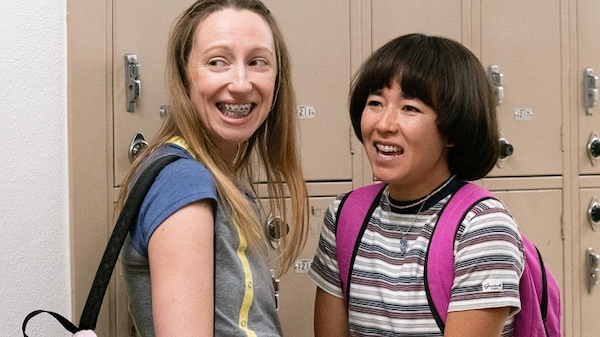
Boys are, well, boys
Maya and Anna are portrayed by actors in their thirties, but the show’s other preteens are actually preteens. You might have to adjust to the initial discomfort of seeing two apparent adult women ogling young boys, but the show brilliantly pulls it off. Once you’re submerged in the show’s world, this juxtaposition feels true to the dynamics of junior high—partly because girls tend to hit puberty earlier than boys anyway.
My own seventh-grade world was abundant with hushed, energetic conversations between girls about boys as if boys were deeply fascinating, enigmatic men. True to my experience, PEN15’s boy characters are much more interested in everything from auto racing to weasel magazines. However, to the show’s credit, the leading almost-men are by no means reduced to single-note dumb boys. They, too, struggle with the changing peer dynamics of junior high, the stress and sadness that comes with growing out of your youth, and, for some, the anxiety of realizing a queer identity at this time and age.
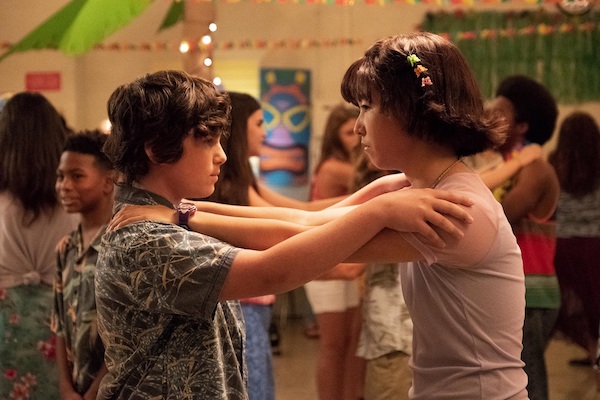
Divorce is portrayed as messy and on-going
It quickly becomes clear in Season 1 that Anna’s parents fight a lot. My parents divorced when I was a kid and shared joint custody of my sister and me. I grew up seeing incompatible parents portrayed on television in predictable ways—either the couple’s constant tension merely lends background color to the story, or a divorce does occur and it’s a singular event, a new normal that’s quickly adjusted to. If a character’s parents are divorced, the family focus tends to be on one parent while the other parent is barely around.
I’ve never seen my own divorce experience—which was more of an on-going emotional journey with two parents involved—depicted in a TV show. When Anna’s parents jointly sit her down in her bedroom and her mom says they need to talk to her about something, there’s nothing to do but cry along with her.
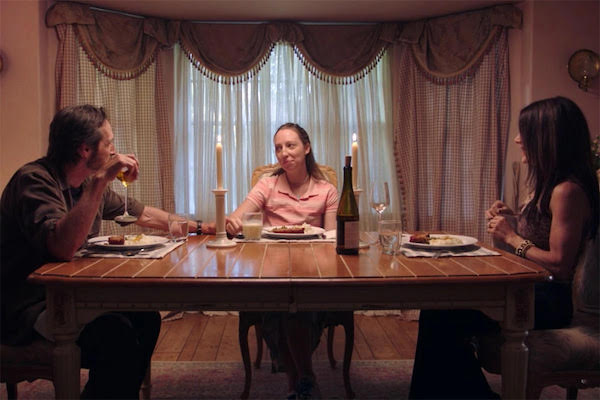
Space is made for grieving
I don’t know if there’s an episode of PEN15 where Maya does not wail obnoxiously to someone about something ridiculous, or Anna does not have a heartbreaking moment of quiet reflection about something she’ll have forgotten about by the time she’s twenty. PEN15 somehow manages to express the drama of adolescent emotions in ways that are both outrageous and heartfelt. With each new step Maya and Anna take toward the maturity they fantasize about, something from their childhood is lost forever.
While the series hilariously captures the bizarre moments of this age, it also makes serious space for its characters to feel the pain of what’s being left behind and the fear of the unknown that lies ahead. Instead of viewing this phase of life as something to be gotten through and survived as quickly as possible (which may or may not have been my approach), PEN15 dwells in the spaces of discomfort, and it asks that you join in.
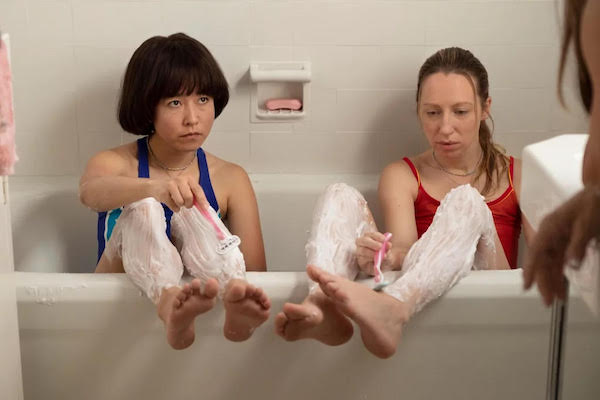
Chaos is made into creativity
Growing up at this age is a wild, non-linear experience, and PEN15 validates this chaos by portraying it authentically and unabashedly. As it turns out, this stew of emotional experience is full of creative opportunity. Not only is the series expertly hilarious, but it also feels as if anything could happen—kind of how it feels to be thirteen, right?
For example, the girls’ self-image issues are magnified in the show’s only animated episode. After seeing themselves represented in a boardwalk caricature drawing, Anna’s and Maya’s animated forms permanently take on their heightened features. It’s comical and ridiculous, but it’s also one of the best portrayals of walking around with a negative self-image I’ve ever seen. In another episode, the girls barely factor in as the story centers around Maya’s mother Yuki, who, as it turns out, was once a hip young translator for touring bands in Japan before switching gears into the stay-at-home role of “Mom.” The quieter episode takes a breather from the stress of middle school. It’s a beautiful short film about a real adult who’s living with the real decisions she’s made for her life—and why not?
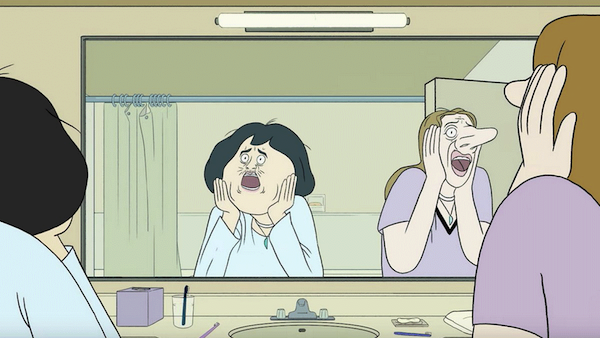
I haven’t given much thought to my preteen self in years (who really relishes the experiences that are puberty and junior high?), but PEN15 made me realize I still carry that time with me. Maybe I’m still processing it in the back of my mind. Maybe I always will be. It’s been so long since I revisited this past version of myself, but PEN15 forced me to see her, embrace her and—most importantly—honor her. For that (and for the reminders of long cargo skirts and the Santana/Rob Thomas hit “Smooth”) I am eternally grateful.

